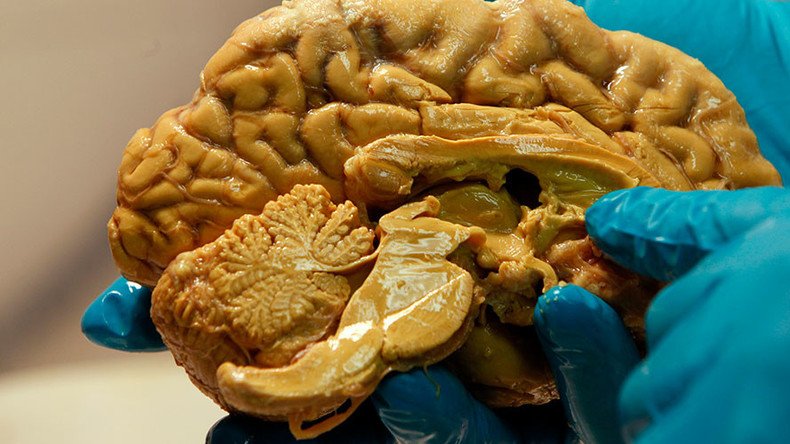Pig cell implants could hold key to alleviating Parkinson’s symptoms

Pig cells implanted into the brain could help alleviate the symptoms of those living with Parkinson's disease, according to a New Zealand based biotech company.
A major source of the tremors in those living with the disease is the loss of dopamine-making cells in the brain. Now, Auckland-based Living Cell Technologies is developing a treatment which extracts the dopamine-producing cells from the choroid plexus in pig brains and inserts them into groups of people living with Parkinson’s. The choroid is a group of nerves and vessels that produces cerebrospinal fluid.
The pig cell implants are wrapped in a special coating made from seaweed to prevent patients' autoimmune response from attacking the foreign cells. Each implant measures just half a millimeter wide and contains roughly 1,000 pig cells.
Cheaper Parkinson’s drug on the cards thanks to enzyme in soy sauce fungus https://t.co/mOlldRByB8
— RT (@RT_com) May 31, 2017
The hormone dopamine is critical to movement control and one of the most widely recognized symptoms of the degenerative disease Parkinson’s are the tremors and diminished motor function.
Current treatments involve dopamine replacement therapy but patients experience diminishing returns over time.
NTCELL continues to halt progress of Parkinson's disease at 130 weeks post-implant#PD#Parkinsonshttps://t.co/SoHxMyy4fnpic.twitter.com/3Qf163kC8l
— LCT Global (@LCTGlobal) June 6, 2017
Initial results from a small sample group of four people 18 months after the implantation surgery have shown early successes, however, Steven Gill at the University of Bristol believes the improvements may be due to the placebo effect, which has proven to be particularly powerful in previous Parkinson's treatment research.
“Nerve cells don’t regrow that fast,” he told New Scientist.
The pig cell implants were given to an additional 18 people as part of a placebo-controlled trial.
In the first trial, each patient had 40 such capsules inserted into one side of their brain but patients in the second, larger trial, have had up to 120 of the pig cell capsules implanted. The results of this trial are due in November.
“It’s putting in a little neurochemical factory to promote new nerve cell growth and repair,” Ken Taylor, of Living Cell Technologies, told the New Scientist.
Breakthrough in Parkinson’s research sparks hope for cure https://t.co/gAt4XBKPJb
— RT (@RT_com) February 23, 2017
“The strategy is a good idea,” Roger Barker at the University of Cambridge, who previously worked as the company’s scientific adviser said. “The question is how competitive that will be compared with other cell therapies.”
Pig cells are also being investigated for potential treatments for Alzheimer's and Huntington's disease.
There are concerns about animal-to-human transplants, particularly in relation to dormant viruses, called porcine endogenous retroviruses, which can hide in pig DNA and could create new diseases, though this has not occurred yet in pig pancreas cell treatments used in diabetes patients.
Researchers are attempting to remove these viruses from the pig genome by employing the CRISPR gene-editing technique.












